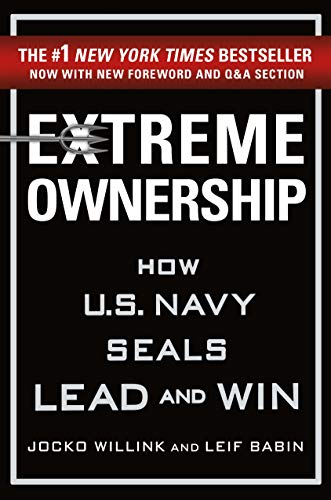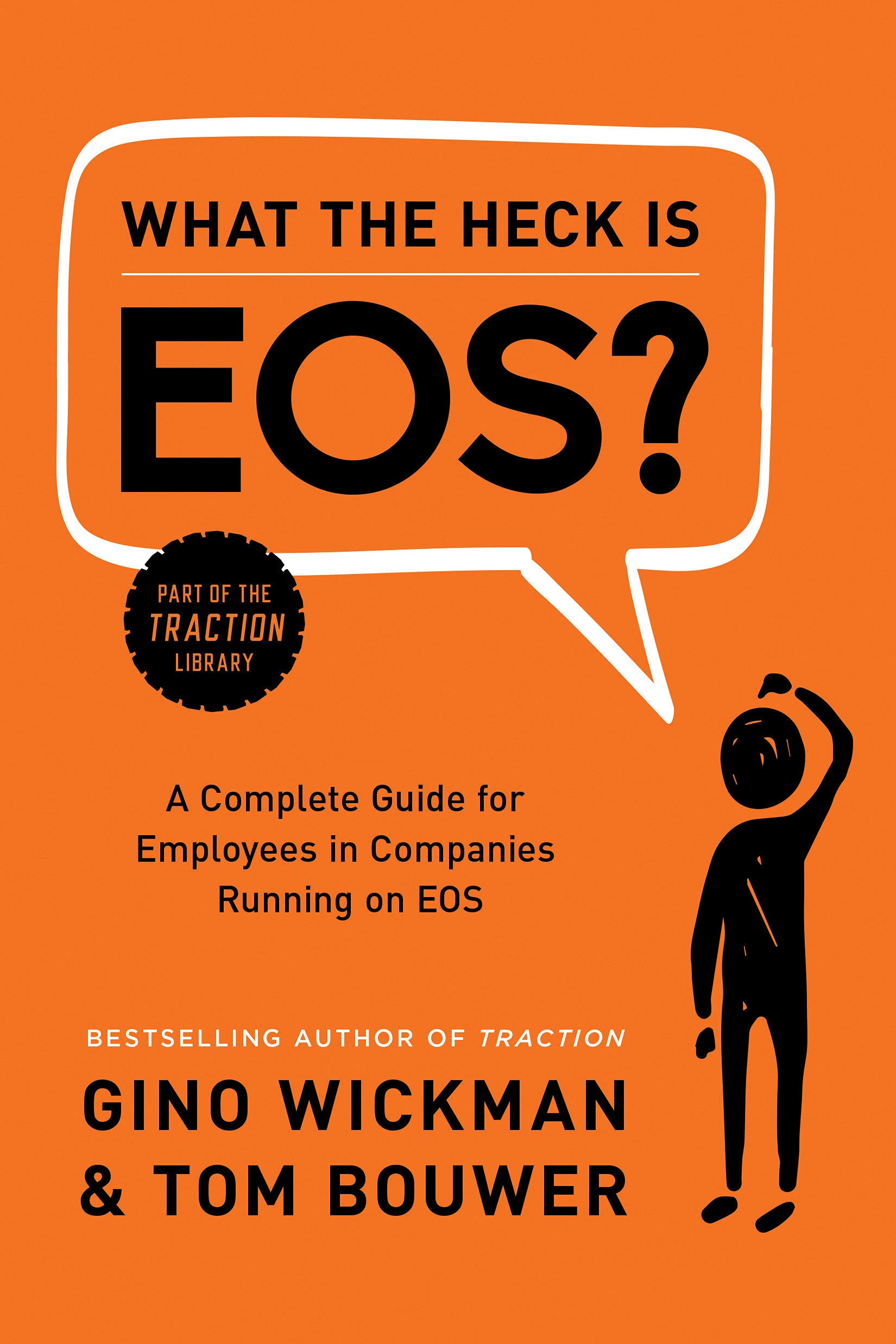Leadership Principles
Hire and Develop the Best
Leaders raise the performance bar with every hire and promotion. They recognize exceptional talent, and willingly move them throughout the organization. Leaders develop leaders and take seriously their role in coaching others. We work on behalf of our people to invent mechanisms for development like Career Choice.
 In Gino Wickman's book Traction (a highly recommended read), he states "Each of your departmental heads should be better than you in his or her
respective position. Of course, you will need to give them clear expectations and instill a system for effective communication and accountability.
Once you have the right people in the right seats, let them run with it." I am a leader that firmly believes in making sure my organization has the
right people in the right seats.
Doing this all starts with hiring and developing the best! I've spent many years recruiting, interviewing, hiring, and growing teams, and as a result, have learned how to hire the best!
In Gino Wickman's book Traction (a highly recommended read), he states "Each of your departmental heads should be better than you in his or her
respective position. Of course, you will need to give them clear expectations and instill a system for effective communication and accountability.
Once you have the right people in the right seats, let them run with it." I am a leader that firmly believes in making sure my organization has the
right people in the right seats.
Doing this all starts with hiring and developing the best! I've spent many years recruiting, interviewing, hiring, and growing teams, and as a result, have learned how to hire the best!
Ownership
Leaders are owners. They think long term and don’t sacrifice long-term value for short-term results. They act on behalf of the entire company, beyond just their own team. They never say “that’s not my job."
 While working at Universal Plant Services, we went through many trainings that centered around
Jocko Willink's Extreme Ownership: How U.S. Navy Seals Lead and Win.
This teaching was invaluable and taught me the importance of empowering your team to lead and absolutely own what they do.
A key overlap with the Amazon principle is the idea of never saying "that's not my job". Use good discernment and make good calls to keep projects moving and get results.
While working at Universal Plant Services, we went through many trainings that centered around
Jocko Willink's Extreme Ownership: How U.S. Navy Seals Lead and Win.
This teaching was invaluable and taught me the importance of empowering your team to lead and absolutely own what they do.
A key overlap with the Amazon principle is the idea of never saying "that's not my job". Use good discernment and make good calls to keep projects moving and get results.
Customer Obsession
Leaders start with the customer and work backwards. They work vigorously to earn and keep customer trust. Although leaders pay attention to competitors, they obsess over customers.
 In Harry Beckwith's book Selling The Invisible,
(at least read the first chapter!), he discusses the importance of truly understanding the psyche of your customer. Being obsessed about your customer,
how they think, what they worry about, what they truly need, is vital in delivering a great product or service. The gist of this book is understanding
that ultimately we are selling services (even tangible products package services with them), and it's those services that are "invisible" to the end customer.
The customer can't touch, or taste the service to inspect quality, or know exactly what they are getting. This creates what the book calls a worried soul.
To obsess over our customers would be to start first by understanding their worry, and work backwards.
In Harry Beckwith's book Selling The Invisible,
(at least read the first chapter!), he discusses the importance of truly understanding the psyche of your customer. Being obsessed about your customer,
how they think, what they worry about, what they truly need, is vital in delivering a great product or service. The gist of this book is understanding
that ultimately we are selling services (even tangible products package services with them), and it's those services that are "invisible" to the end customer.
The customer can't touch, or taste the service to inspect quality, or know exactly what they are getting. This creates what the book calls a worried soul.
To obsess over our customers would be to start first by understanding their worry, and work backwards.
Earn Trust
Leaders listen attentively, speak candidly, and treat others respectfully. They are vocally self-critical, even when doing so is awkward or embarrassing. Leaders do not believe their or their team’s body odor smells of perfume. They benchmark themselves and their teams against the best.
I'd take a medium performer with high trust over a top performer with no trust any day of the week. Trust is huge. Be quick to listen, and slow to speak. Treat others with respect and genuine interest and you will develop trust. Deliver on your promises and go out of your way to make sure you are looking out for their best interests and not just your own. Be willing to be transparent and have humility. When people see you can admit your mistakes and work harder to learn from it and fix it, you will develop trust.
Dive Deep
Leaders operate at all levels, stay connected to the details, audit frequently, and are skeptical when metrics and anecdote differ. No task is beneath them.
 When I worked a Loomis, the President always stressed "Measure. Monitor. Manage."
This stuck with me throughout my career, and I am a leader that believes in objective ways to measure performance.
It's easy to focus in on anecdotal evidence, whether good or bad, and get wrong reads on exactly where your organization sits.
In Gino Wickman's book What The Heck Is EOS?,
he goes over tried and true tools for leading and growing a company. One of those tools is developing a scorecard
that objectively measures progress and has threshold goals that must be hit weekly. If threshold goals aren't hit,
you know what to manage to. There is an art to picking the right metrics, but when you do, it allows me as a leader
to not always have to "get in the weeds" or "micro manage", and yet still have a good measure on what's going on and know when I need
to "swoop down" and get into the details every now and then.
When I worked a Loomis, the President always stressed "Measure. Monitor. Manage."
This stuck with me throughout my career, and I am a leader that believes in objective ways to measure performance.
It's easy to focus in on anecdotal evidence, whether good or bad, and get wrong reads on exactly where your organization sits.
In Gino Wickman's book What The Heck Is EOS?,
he goes over tried and true tools for leading and growing a company. One of those tools is developing a scorecard
that objectively measures progress and has threshold goals that must be hit weekly. If threshold goals aren't hit,
you know what to manage to. There is an art to picking the right metrics, but when you do, it allows me as a leader
to not always have to "get in the weeds" or "micro manage", and yet still have a good measure on what's going on and know when I need
to "swoop down" and get into the details every now and then.
Deliver Results
Leaders focus on the key inputs for their business and deliver them with the right quality and in a timely fashion. Despite setbacks, they rise to the occasion and never settle.
Delivering results with quality is huge. As a Certified Scrum Product Owner, I learned what it means to maximize value of the product. If you want to provide value to your end customer, you must deliver! Sounds simple, but making sure a steady stream of value is delivered is important. In the software world, this is why Agile and Scrum are so useful, as it gets rid of the bloat and makes sure value is being delivered often (as opposed to Waterfall). Quality is also apart of value, for the obvious reason that if you deliver something often, but that thing has poor quality, well what value gained was that? This is why having a good quality department that understands not just how to test, but what to test is vital in delivering results.














